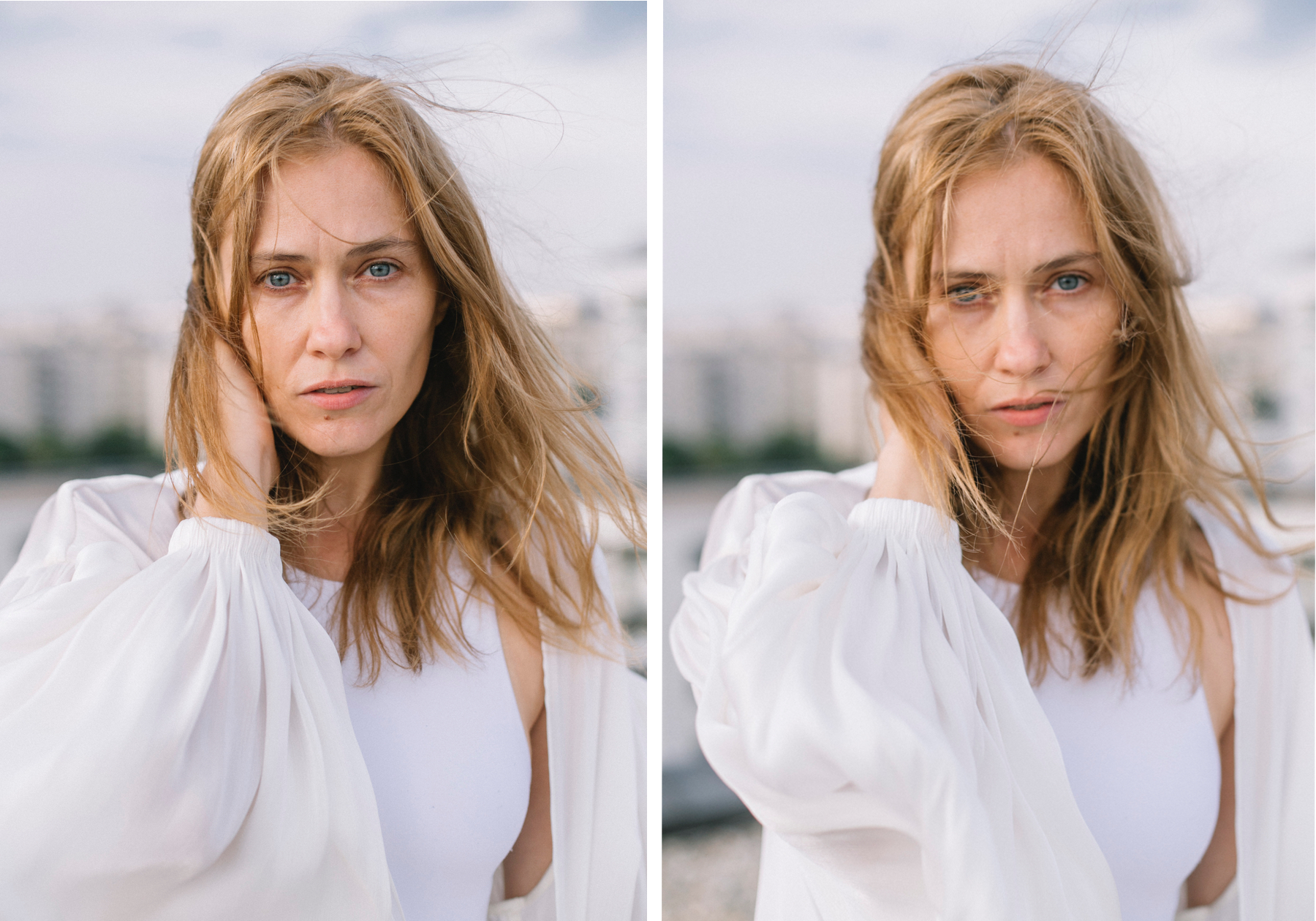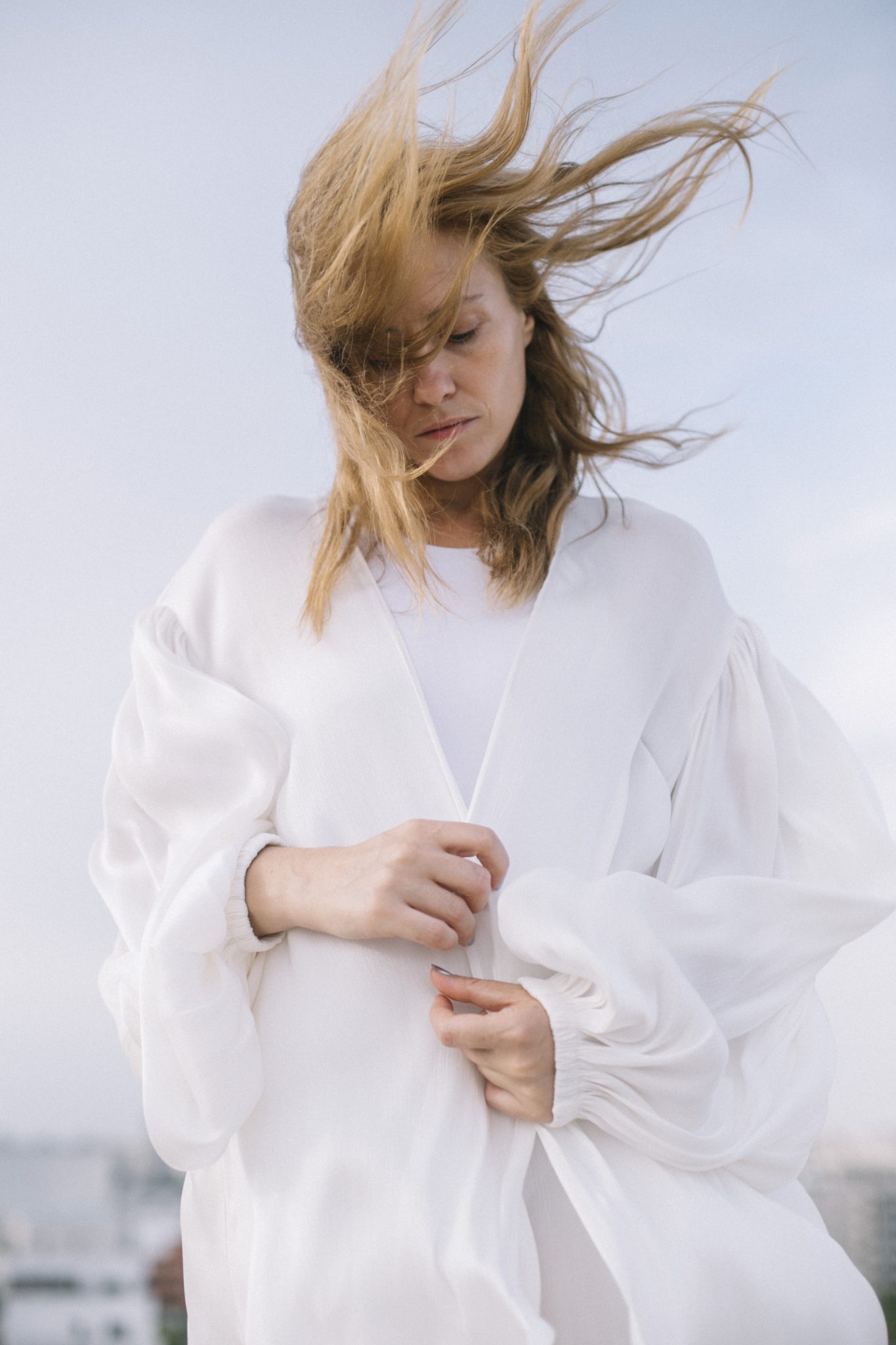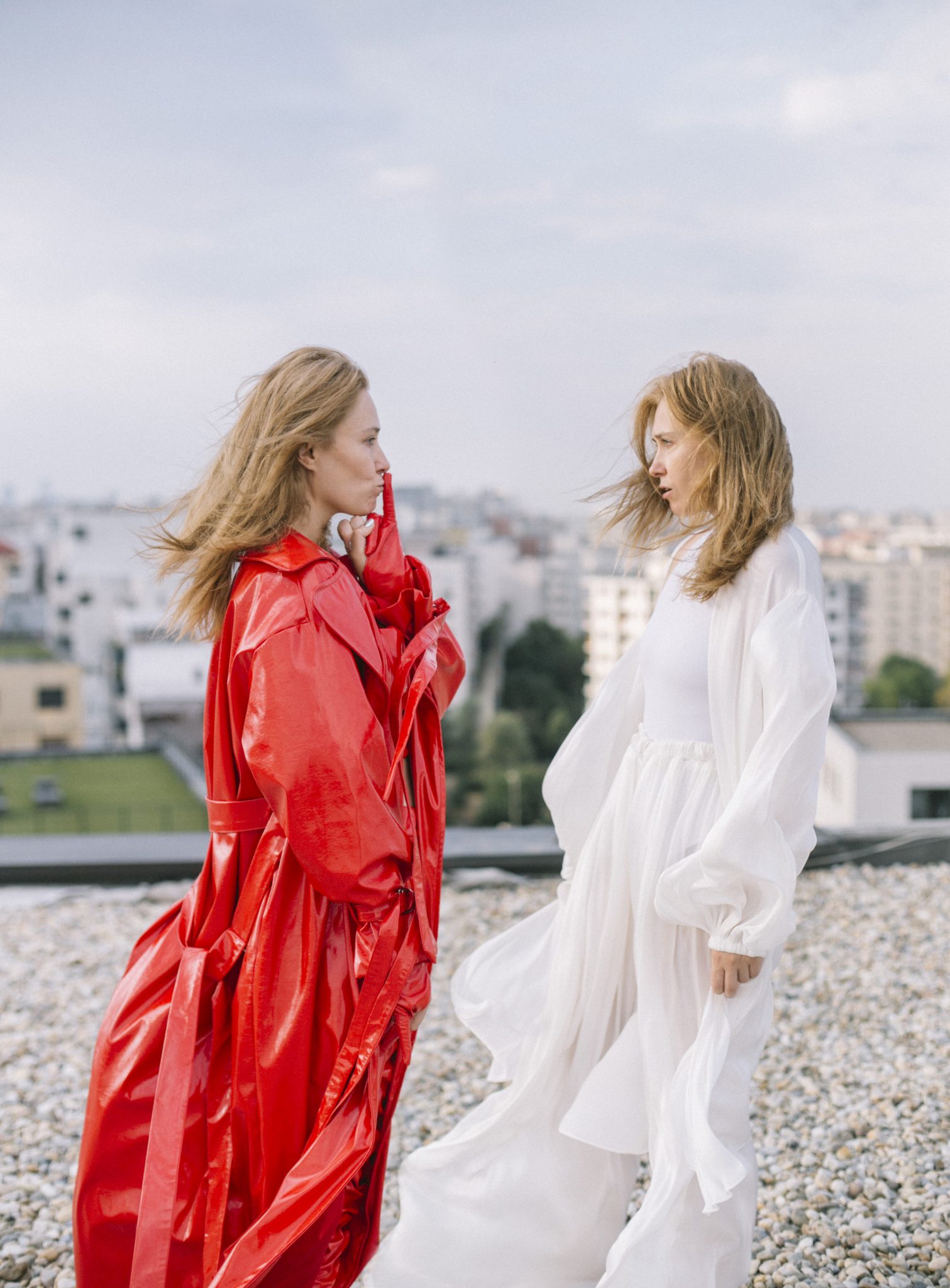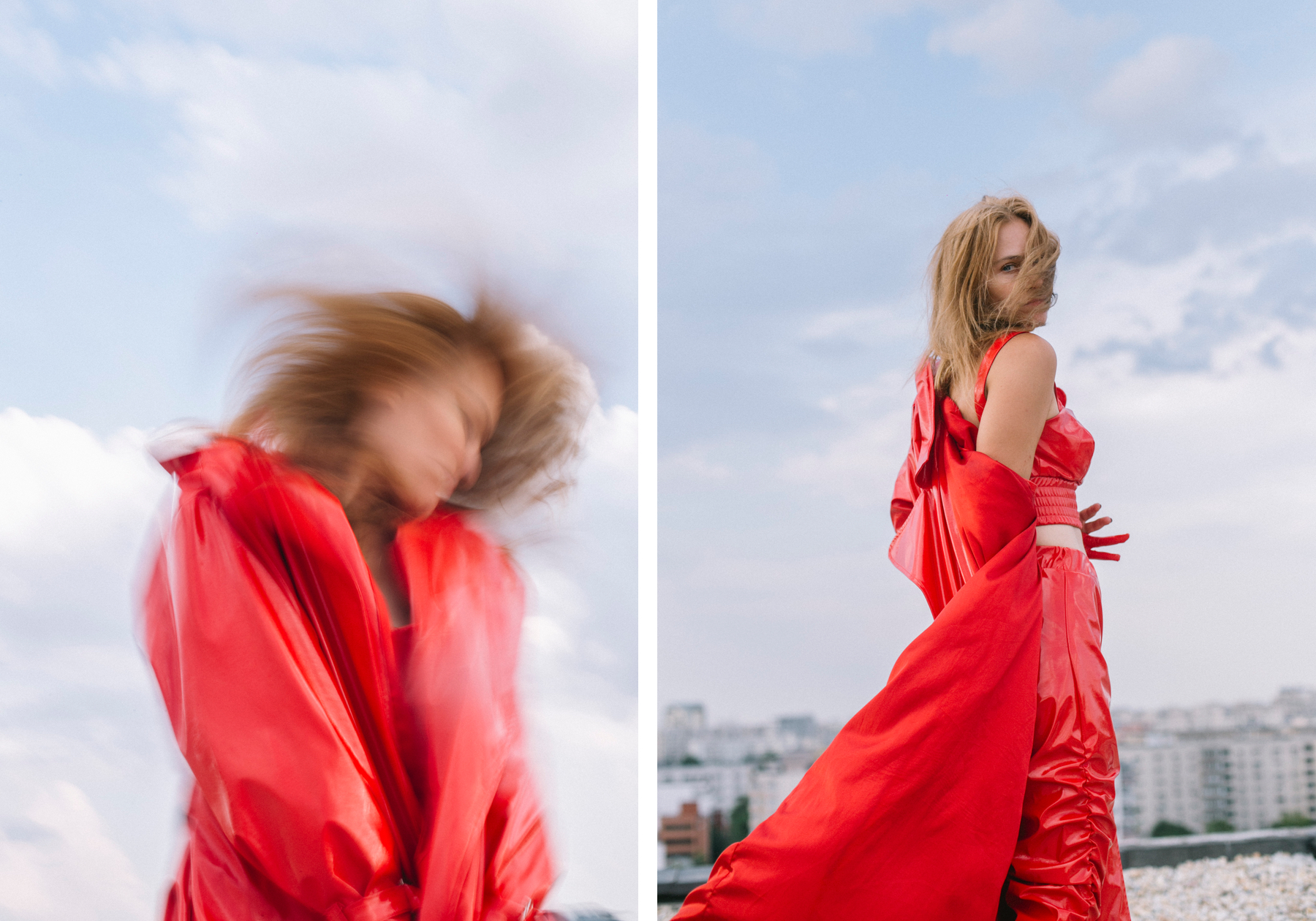Mălina Manovici about ”A higher law”
Mălina Manovici was born in 1979 in Bârlad, the city where she grew up. She always wanted to be an actress but her dream came true later in life, as she went on to study Acting at the age of 25. Today, at 43, she finally seems to be on her path to success, self-discovery and professional appraisal. It was not easy at all but she is grateful for every opportunity she got – starting with the supporting role in Cristian Mungiu’s Graduation to this recent lead role in A Higher Law – Octav Chelaru’s feature film debut, which comes out in theaters this fall. We invite you to learn about her journey, fears and inner struggles, and many more in the interview below.

Tell us a bit about your journey as an actress.
I wanted to be an actress for as long as I can remember. I wanted to escape the world I was living in and cinema seemed very appealing to a child who lived part of her childhood under communism – I was 10 years old when the regime fell. I remember looking at pictures of actors and actresses in a random magazine and they fascinated me. Later, I started watching art films – I would watch anything, but these arthouse movies seemed different; every week, the National Television would show one such film late in the evening, and before the screening, there was a discussion about it. I was captivated by Luis Buñuel’s Belle du Jour, but I had no one to talk to about it. Acting was my biggest wish and the idea of being on a stage was both frightening and appealing.
My dream came true in 2004. I initially studied Foreign Languages at university. My parents didn’t support my wish to become an actress, they told me to choose a programme that would provide me with a decent living, and afterwards, I could do what I want – and that’s what I did, right after graduating. In 2004 I was already married and living in Timișoara. I studied Acting there and started collaborating with the local theater quite quickly. When I was a student, there was an unstable relationship between the school and the theater – sometimes they were open and would invite us to collaborate, other times we were excluded. I didn’t have a steady flow, I would have long periods of hiatus and they always came when I felt the need to work. I still feel the need to work as much as possible, to gain experience, to learn as much as possible.
What have you learned from the long periods of hiatus?
I don’t think I used that time productively, I ended up self-destructing somehow. It was rather harmful. I had bad and very discouraging moments, I didn’t see what I could do, there seemed to be no opportunities at all, but I certainly could have used that time differently. I did have a job. For more than 10 years, I worked part-time and, in parallel, went to castings. I had a 6-year hiatus, the longest I’ve gone without performing, but I got the chance to star in Graduation and that opened a new door.
You are at your second lead role – after starring in Lemonade (dir. Ioana Uricaru). How did you come to work with Octav Chelaru on his feature film debut?
I was called for an audition. I started to prepare the scene I was going to perform while worrying about all kinds of things. I thought the first call went well but it wasn’t the first time I felt good about an audition and didn’t get the part in the end (laughs).
Octav had seen Lemonade, he congratulated me on the role and invited me to another audition for his film, but it was a very long process – no one was calling me about the second audition and although I’m not a pushy person, I started bugging the casting director. Due to the pandemic and other projects, the casting stage took a long time. I appreciated Octav’s honesty throughout the whole process. He told me that he was seeing several actresses and that he was undecided. He always told me where I stand. At one point, he came to Timișoara and we spent a whole day together, trying to get to know each other better.

Do you remember your reaction after reading the script for the first time?
I don’t remember when that was, but I remember feeling intimidated by the nudity and intimate scenes. Still, I liked it. To be honest, I would have accepted any role, I feel I finally have the courage to take the plunge and I’m very keen about performing.
I didn’t understand why Ecaterina was punished so harshly, to the point she was annihilated. I felt very frustrated about that.
Why do you think that most female protagonists in Romanian films must suffer or be tormented? Why aren’t there also roles portraying brave women, with decision-making power and masters of their own destiny?
That’s a great question! I think it’s a reflection of our society, that’s the reality here. We live in a country where it’s hard for a woman to thrive – look at Ecaterina, there are many women like her and most of them don’t even give themselves the chance to know their own selves, to understand where they’re coming from. They accept being told what to do and after a point it becomes normal.
Ecaterina is an obedient, religious woman with a rather boring life, who prefers to suppress her emotions rather than upset her husband. How did you come to know your character? And where do you two meet, what do you have in common?
I mostly relied on the script. I also did some research – I would go to church and observe the women’s behavior, letting it all settle within me, but the script was the main guide. And the discussions with Octav. I felt that I could play Ecaterina also because I was familiar with the environment she lives in. This type of relationship where the man is the alpha and the woman has no voice and is taken for granted, is something that I’ve experienced before and it wears you down. We should be able to discuss anything. What I liked about Ecaterina is that she is self-inquiring and curious, and questions many things from religious dogma.
Octav often questions these practices of the Romanian Orthodox Church and the way in which a certain creed and mentality are induced to us – and not only in A Higher Law but also in many of his short films. What is your relationship with divinity and especially with the Church? And how were you raised in this sense?
I wouldn’t say I was raised in an extremely religious environment. We didn’t discuss religion and faith, but we respected the traditions and celebrated Christmas and Easter. I’ve always been more liberal and open-minded, maybe due to all the reading I did and the movies I watched as a teenager. I’m still not a religious person, I don’t know if that’s the best way to relate to reality.

Given the film subject, I dare ask you – what are your demons, your inner struggles?
I have several but perhaps the most overwhelming is feeling like I’m never enough. Like I’m not deserving my place. Maybe someone else is better than me for a certain role, maybe I took someone else’s place. I always feel the need to prove myself, I feel exposed, anyone can tell me anything, everyone has an opinion and can cancel or crush you. This lack of self-confidence often seems like an abyss that swallows me. That is my struggle, both on a professional and personal level.
Let’s also talk about Lemonade, the film in which you had your first lead role, and Tuff Money, the HBO series where you played an episodic part. What was it like working on them, was it different? And if so, in what ways?
I don’t think it was very different – the process was the same, consulting with the director, which I always rely on, rehearsals, etc. For Lemonade we shot a lot of takes – there were fewer rehearsals, only for the bigger and more important scenes, everything else happened on set; the first takes were like rehearsals, and Ioana [i.e. Ioana Uricaru, the director] was often demanding of us, she wanted to experiment. I remember a 15-minute scene, a one shot scene – it was very wearing, especially emotionally. I was constantly tense working on that film. I think I wanted to feel like that, I didn’t allow myself to relax at all, not for a second. On Tuff Money everything happened really fast. It was different because I was much more relaxed. I was playing an episodic part so I didn’t have to carry all the weight – even though I treated the role with the same responsibility.
What did you learn from working on Lemonade that helped you on the set of A Higher Law?
The fact that you have to stay focused, how to keep your energy and composure, how to be flexible – I’ve had lines or scenes change at the last minute, you have to adapt.
Do you still do theater?
I haven’t performed on a stage in over six months and I miss it. What I love about theater is that you get to revisit your character with every performance. You get a different understanding of what you say and do, you can change some things. When making a film, everything happens here and now.

There’s been a lot of talk lately about the abuses in film and theater institutions, especially psychological ones, which is why I feel I must ask you if you’ve ever felt you were placed in an inferior position professionally, for the sole reason of being a woman? Have you ever been treated unfairly?
Of course, but I don’t think there is any actress who hasn’t been through that. Abuses happen everywhere. I have seen how people in positions of authority often exercise their power abusively if you don’t obey. We should stand against and expose such situations more often, these people should be penalized. It’s very hard because you are afraid of risking your career and there will certainly be consequences. I’m glad we’re starting to talk about it, though.
You said in an interview that you would like to reinvent yourself with each part. Given the opportunity, what role would you most like to play?
I feel like so far I’ve always been cast in roles depicting sensitive, fragile women, so I think I’d like to play a strong character, speaking of what you were asking me earlier. A superheroine. I think I have the strength within me and I would love to tap into it, it would certainly help me on a personal level as well. But I’m open to trying anything, I learn from every experience.

A higher law will be available in all Romanian cinemas from September 9th.
Laura Mușat
Film producer and founder of ADFR, she dreamed since she was little of having a magazine one day. Alongside her job as editor-in-chief, she writes the interview of the month. She loves animals, jazz music and films festivals.
